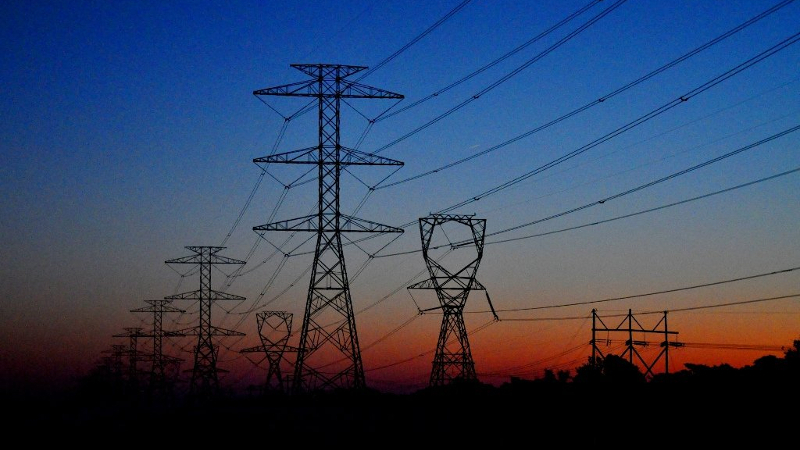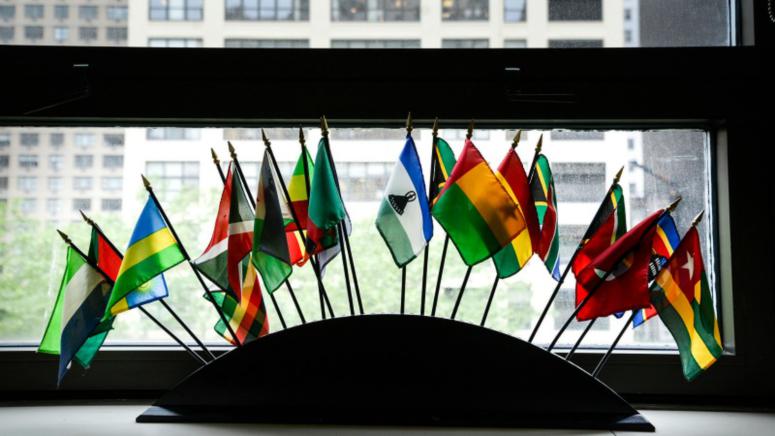Deutsche Welle (8 February 2017)
Ministers from 15 countries have agreed to devise measures to ensure that a land route for refugees remains shut. Regional governments also oppose taking in refugees who have already reached the European Union.
Countries along a route commonly used by people trying to reach central and western Europe agreed on Wednesday to fortify their already hard borders. Since authorities reintroduced border fences and increased checks nearly a year ago, the number of refugees traveling through the western Balkans in attempts to reach northern EU nations from Greece has been sharply curtailed.
"We're sending a signal to the traffickers with this conference that there will be no illegal migration to Europe," Austrian Interior Minister Wolfgang Sobotka told reporters after Wednesday's talks in Vienna. He spoke of new "border control measures" as part of the plan but did not elaborate what the plans entailed.
Talks in Vienna brought together defense and interior ministers from Austria, the Czech Republic, Croatia, Hungary, Poland, Romania, Slovakia, Slovenia, Albania, Macedonia, Bulgaria, Serbia , Bosnia-Herzegovina, Kosovo and Greece. In 2015, some of those countries became arrival or transit points for the hundreds of thousands of people fleeing conflict and unsustainable conditions in the Middle East, Africa and South Asia.
What's next
The conference's participants said they planned to identify the most prevalent routes used by displaced people and any potential alternatives and arrive at an estimate of how much additional manpower they might need to shut the borders down. Sobotka said he and his colleagues would draw up new measures to fortify the borders by April.
Austrian Defense Minister Hans Peter Doskozil said the countries would also need to prepare for the possible disintegration of the European Union's controversial and multi-billion-euro migrant deal with Turkey.
Arriving without authorization via Italy or the Balkans, between 1,000 and 1,500 people applied for asylum in Austria in January. "The situation is not as we envisaged," Doskozil said after Wednesday's talks.
mkg/sms (dpa, AP)
No comments yet.
- GREECE HOLDS BACK ON FINALIZING STRATEGY IN TALKS WITH CREDITORS The Balkans 09.02.2017
-
 NO ELECTRICITY PRICE HIKE IN KYRGYZSTAN IN 2017
Asia - Pacific
09.02.2017
NO ELECTRICITY PRICE HIKE IN KYRGYZSTAN IN 2017
Asia - Pacific
09.02.2017
- UKRAINE CONFLICT: REBEL LEADER GIVI DIES IN ROCKET ATTACK Europe - EU 09.02.2017
- PROTEST HELD BEFORE BELARUSIAN EMBASSY IN ARMENIA The Caucasus and Turkish-Armenian Relations 09.02.2017
-
 UK FOREIGN AID FRAUD INVESTIGATIONS ‘QUADRUPLE IN LAST FIVE YEARS’
Europe - EU
09.02.2017
UK FOREIGN AID FRAUD INVESTIGATIONS ‘QUADRUPLE IN LAST FIVE YEARS’
Europe - EU
09.02.2017
-
25.01.2016
THE ARMENIAN QUESTION - BASIC KNOWLEDGE AND DOCUMENTATION -
12.06.2024
THE TRUTH WILL OUT -
27.03.2023
RADİKAL ERMENİ UNSURLARCA GERÇEKLEŞTİRİLEN MEZALİMLER VE VANDALİZM -
17.03.2023
PATRIOTISM PERVERTED -
23.02.2023
MEN ARE LIKE THAT -
03.02.2023
BAKÜ-TİFLİS-CEYHAN BORU HATTININ YAŞANAN TARİHİ -
16.12.2022
INTERNATIONAL SCHOLARS ON THE EVENTS OF 1915 -
07.12.2022
FAKE PHOTOS AND THE ARMENIAN PROPAGANDA -
07.12.2022
ERMENİ PROPAGANDASI VE SAHTE RESİMLER -
01.01.2022
A Letter From Japan - Strategically Mum: The Silence of the Armenians -
01.01.2022
Japonya'dan Bir Mektup - Stratejik Suskunluk: Ermenilerin Sessizliği -
03.06.2020
Anastas Mikoyan: Confessions of an Armenian Bolshevik -
08.04.2020
Sovyet Sonrası Ukrayna’da Devlet, Toplum ve Siyaset - Değişen Dinamikler, Dönüşen Kimlikler -
12.06.2018
Ermeni Sorunuyla İlgili İngiliz Belgeleri (1912-1923) - British Documents on Armenian Question (1912-1923) -
02.12.2016
Turkish-Russian Academics: A Historical Study on the Caucasus -
01.07.2016
Gürcistan'daki Müslüman Topluluklar: Azınlık Hakları, Kimlik, Siyaset -
10.03.2016
Armenian Diaspora: Diaspora, State and the Imagination of the Republic of Armenia -
24.01.2016
ERMENİ SORUNU - TEMEL BİLGİ VE BELGELER (2. BASKI)
-
AVİM Conference Hall 24.01.2023
CONFERENCE TITLED “HUNGARY’S PERSPECTIVES ON THE TURKIC WORLD"









